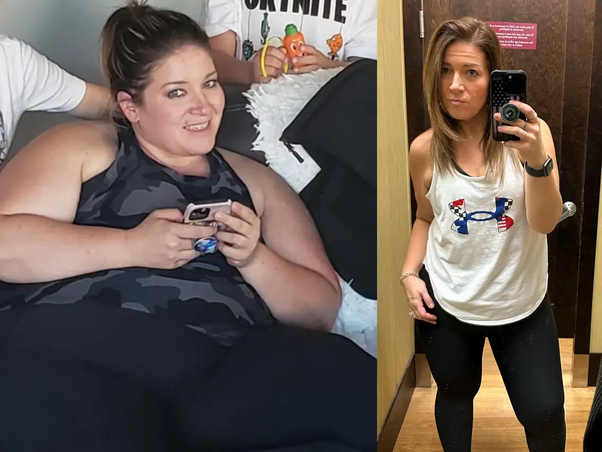Weight loss is a common goal for many individuals, and there are countless diets and weight loss programs available to help achieve this. One medication that is often prescribed to aid in weight loss is Vyvanse.
Vyvanse is a stimulant medication that is typically used to treat attention deficit hyperactivity disorder (ADHD), but it is also known to suppress appetite and increase metabolism.
Potential weight loss effects of Vyvanse
While Vyvanse is primarily prescribed for ADHD, many individuals have experienced weight loss while taking the medication. The exact amount of weight loss varies from person to person, as it depends on various factors.
Higher doses of the medication tend to have a more significant impact on appetite suppression and metabolism. If weight loss is a goal, it is crucial to approach it holistically, combining medication, healthy eating, and regular exercise for sustainable results.
Factors
There are several factors that can influence the amount of weight loss experienced while taking Vyvanse. First and foremost, the dosage of the medication prescribed plays a significant role. Higher doses of Vyvanse tend to have a stronger impact on appetite suppression and metabolism.
Lifestyle factors, such as diet and exercise, cannot be overlooked when discussing weight loss on Vyvanse. It is still important to make healthy eating choices and maintain a balanced diet to achieve the best results.
It is crucial to consult with a healthcare professional before starting Vyvanse or any other medication. Working with a healthcare team can ensure that the medication is used safely and effectively while maximizing weight loss results.
Guidelines and effective weight loss with Vyvanse
When using Vyvanse for weight loss, it is important to follow some guidelines to ensure safety and effectiveness. Here are a few recommendations to keep in mind:
1. Consult with a healthcare professional:
Before starting Vyvanse or any other medication, it is crucial to consult with a healthcare professional. They can provide guidance specific to your individual needs, monitor your progress, and adjust the dosage if necessary.
2. Stick to the prescribed dosage:
It is important to take Vyvanse exactly as prescribed by your healthcare provider. Increasing or decreasing the dosage without medical supervision can be dangerous and may lead to adverse effects.
3. Focus on a balanced diet:
While Vyvanse can help suppress appetite, it is still important to focus on a balanced diet. Incorporate plenty of fruits, vegetables, lean proteins, and whole grains into your meals. Avoid processed foods, sugary snacks, and excessive caffeine.
4. Engage in regular physical activity:
Vyvanse can enhance weight loss efforts, but it is not a substitute for regular exercise. Engaging in physical activity, such as cardio exercises, strength training, or yoga, can help burn calories and improve overall health.
Monitoring Progress
Monitoring your progress is an essential component of using Vyvanse for weight loss. Keeping track of your journey can help you stay motivated and make any necessary adjustments along the way. Here are a few ways to effectively monitor your progress:
– Weigh yourself regularly:
Use a reliable scale to track your weight on a consistent basis. It is recommended to weigh yourself at the same time each day, preferably in the morning, before eating or drinking anything.
– Take body measurements:
In addition to weighing yourself, measure your waist, hips, and other areas of the body where you want to see changes. As you lose weight, you may notice changes in these measurements that can be encouraging.
– Keep a food diary:
Record what you eat and drink throughout the day. This will help you identify any patterns or areas where you can make improvements. Be honest with yourself and include everything you consume, even small snacks or drinks.
– Monitor your energy levels:
Pay attention to how your energy levels fluctuate throughout the day. Vyvanse can increase energy, but it is important to ensure you are not overexerting yourself. Listen to your body and rest when needed.
Potential risks and consideration
While Vyvanse may have benefits for weight loss, it is important to consider potential risks and side effects before starting this medication. Always consult with a healthcare professional before beginning any weight loss program or using Vyvanse.
1. Side effects:
Vyvanse is a prescription medication and can cause various side effects including increased heart rate, elevated blood pressure, insomnia, dry mouth, abdominal pain, and headaches. It is important to be aware of these potential side effects and monitor your body’s response.
2. Dependency:
Vyvanse is a stimulant medication that can potentially be habit-forming. It is important to use the medication as directed by a healthcare professional and avoid increasing the dosage without their guidance.
3. Health conditions and interactions:
Vyvanse may not be suitable for individuals with certain health conditions such as heart problems, high blood pressure, or a history of substance abuse. It is crucial to disclose your medical history and any medications you are taking to your healthcare provider before starting Vyvanse.
4. Lifestyle changes:
While Vyvanse may aid in weight loss, it is not a substitute for adopting a healthy lifestyle. It is essential to make sustainable changes to your diet and exercise routine to achieve long-term weight loss success.
Conclusion
After considering the potential risks, side effects, and necessary lifestyle changes, you may be wondering if Vyvanse is a viable option for weight loss. The answer depends on various factors, including your specific health condition and goals.
While Vyvanse has been shown to contribute to weight loss in some individuals, it is important to remember that it is not a magic solution. It should be used as part of a comprehensive weight loss program that includes healthy eating.
Vyvanse should only be used under the supervision of a healthcare professional who can monitor your progress, adjust the dosage if needed, and address any concerns or side effects that may arise.










Hello!! My name is Annabella
I love to eat, travel, and eat some more! I am married to the man of my dreams and have a beautiful little girl whose smiles can brighten anyone’s day!